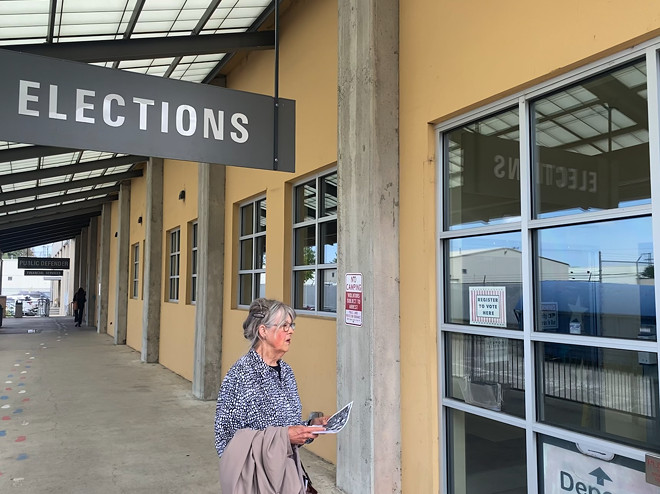Spokane County Commissioner's Conflict of Interest: PFAS Contamination and Stock Investments
Spokane County Commissioner Al French's recent financial disclosures have ignited a firestorm of controversy, particularly given the ongoing crisis of per- and polyfluoroalkyl substances (PFAS) contamination in West Plains groundwater. His reported investments in three companies—Chemours Company, DuPont, and Corteva, Inc.—all manufacturers of products containing PFAS, have raised serious ethical concerns among residents and activists.
PFAS Contamination in West Plains: A Timeline of Neglect?
For decades, Fairchild Air Force Base and Spokane International Airport (SIA) used aqueous film-forming foam (AFFF) containing PFAS to fight jet fuel fires. This practice, though mandated by federal regulations, resulted in the leaching of these toxic chemicals into the groundwater. The ignorance of AFFF's toxicity at that time led to its disposal into the soil, unknowingly contaminating the aquifers providing drinking water to West Plains residents. The subsequent cover-up of this contamination by both French and SIA, which he serves as vice chair, further intensifies this controversy.
The Delay in Public Disclosure
Despite discovering the PFAS contamination in 2017, the Spokane International Airport withheld this crucial information from the public until 2023, when a public records request by a concerned resident exposed the findings. This delay, coupled with Commissioner French's lobbying efforts against legislation banning PFAS-containing AFFF in Olympia, casts a long shadow on his actions and commitment to public health.
French's Defense and the Ethical Implications
Commissioner French maintains that the stocks in question belong to his mother's estate, currently in probate. He stated, “While I technically do not ‘own’ the stocks yet I will when probate is closed so they are a ‘pending asset.’ I listed them in an effort to be fully transparent.” This explanation, however, fails to fully address the ethical concerns inherent in his position. The appearance of a conflict of interest remains, raising questions about his judgment and his ability to act impartially on issues related to PFAS contamination.
Conflicting Interests and Transparency
The situation is further complicated by French's involvement in multiple organizations: he's a member of the Spokane Regional Health District Board and the chair of the board of S3R3 Solutions (formerly the West Plains/Airport Area Public Development Authority), which works closely with the airport. Jason Grant, director of Advocacy at ICMA, highlights the ethical challenges faced by public officials holding multiple positions, noting that these conflicting interests can restrict their ability to disclose information pertinent to the public good.
The Public's Response and the Path Forward
The revelation of Commissioner French's investments has intensified calls for greater transparency and accountability from public officials. John Hancock, founder of the West Plains Water Coalition, while acknowledging that PFAS manufacturers may not have been aware of the chemicals’ toxicity due to decades of cover-up by companies like 3M and DuPont, argues that the Commissioner's investments are an issue that requires attention. The controversy significantly impacted the 2024 election, with French winning by a narrow margin despite the public outcry. The situation highlights the importance of disclosure and avoiding even the appearance of a conflict of interest.
Addressing the Crisis and Restoring Trust
Spokane County is now establishing a clean water task force to address the PFAS contamination, but many residents remain skeptical. The task force plans to provide filters for contaminated wells, but this doesn't address the needs of those with gardens, farms, and ranches on the West Plains, leaving many vulnerable. The lack of immediate, comprehensive action leaves the community feeling betrayed and the future of West Plains’ clean water uncertain. This event serves as a stark reminder of the need for stricter regulations, increased transparency and the imperative to prioritize the well-being of the community over personal financial gain. Only through these changes can we hope to restore the public's trust and ensure a safer future for all residents. The long-term effects of the contamination are yet unknown and require continuous monitoring and robust intervention.
The Road to Recovery: A Call for Action
The situation in Spokane County underscores a broader systemic issue—the urgent need for comprehensive legislation and policy changes to address PFAS contamination and prevent future environmental disasters. The incident serves as a harsh lesson emphasizing the necessity of robust environmental regulations, the importance of transparency in public service, and the crucial need for vigilance in safeguarding public health and the environment. The ongoing efforts to remediate the damage, restore the community's trust, and prevent similar incidents in the future will define the legacy of this troubling episode. This ongoing crisis requires sustained engagement, collaborative effort, and an unyielding commitment to securing a healthier environment and a more transparent government. The people of West Plains deserve nothing less. The situation necessitates a unified front in demanding accountability, pursuing justice, and ensuring the safety of our communities. The fight for clean water and ethical governance continues.

















